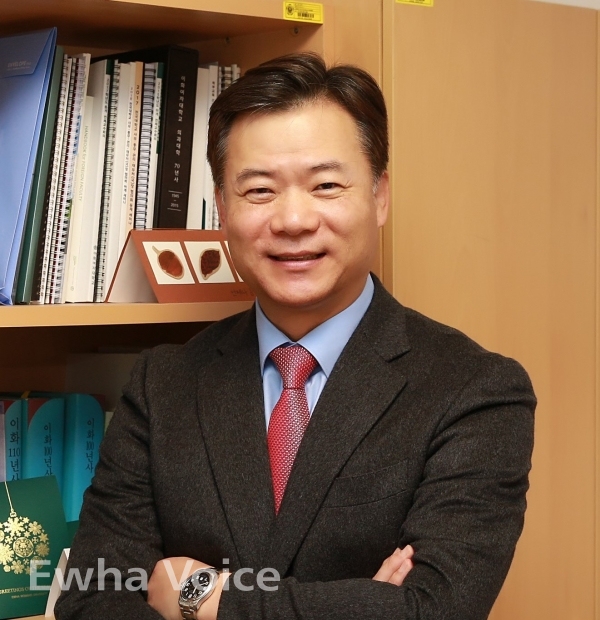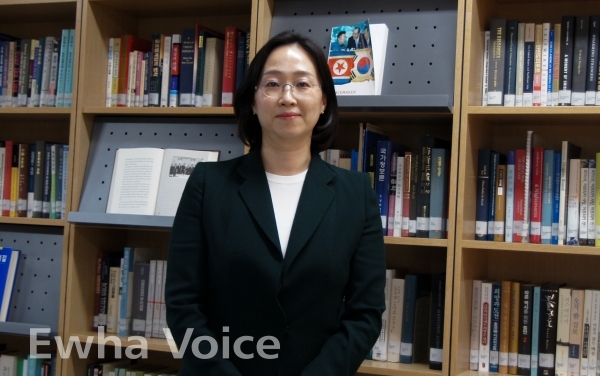
Photo provided by In-hwi Park

Since last October, the U.S.-China trade war started to spread from a chip war to a high-tech war, not only affecting countries leading the semiconductor and IT industries but also international relations as a whole.
Since 2019, the United States has been continuously facing conflicts in international trade with China. In response, the U.S. has imposed restrictions on semiconductor chips in order to prevent the rising power of China since last year. Specifically, The CHIPS and Science Act and Inflation Reduction Act of 2022 were enacted by the United States Congress and signed into law by President Joe Biden, with restrictions seeming to spread to other areas of high-tech including artificial intelligence (AI) as of March 2023.
Professor In-hwi Park from the Graduate School of International Studies shared his thoughts on the continuous U.S.-China conflict. Park, who majored in international relations theory, currently lectures and studies international relations, security issues, and U.S.-China relations.
“Just like how different people have different levels of economic wealth, different countries may well have national differences in power,” Park said. “It is natural for power states to enforce self-directed economic order in international relations, and the current states with power are the United States and China.”
Park described that the conflict between the two countries is spreading to the high-tech industry because countries are no longer interested in military operations using force. Since semiconductors have become the most important resource for advanced weapons, global communication networks, and industrial supply chains, the current international society believes that dominating these strategic materials is the most important prerequisite for creating a self-centered world order.
Although China has maximized its benefit under the international order mainly formed by the United States in the past, this type of interest relationship has been made no longer possible after the transition of China into a power state.
“One of the most interesting traits of the current conflict is that it is different compared to past power state confrontations,” Park said. “Unlike international conflicts in the 20th century, extreme confrontation coexists with extreme cooperation in the current conflict.”
Professor Hyo-young Lee from Korea National Diplomatic Academy under the Ministry of Foreign Affairs (MOFA) with a doctorate in International Studies shared her thoughts on the continuous U.S.-China conflict. Lee, who majored in international trade, currently studies World Trade Organization (WTO) disputes and commercial policies.
Lee described that the U.S.-China conflict that spread from a tariff war to a currency war, and currently a tech war, has a great international ripple effect. The CHIPS and Science Act and Inflation Reduction Act go beyond domestic laws of the U.S. to affect various foreign companies taking part in the competitive U.S. market.
Regarding the current conflict, the U.S. believes that China has gained its current industrial competitiveness through seizing technology for strategic purposes. On the other hand, China argues that the United States is disrupting the current multilateral trade order and aiming towards a power-based system.
Lee mentioned that the United States is working to prevent China’s “semiconductor rise” by strengthening its own production capacity for semiconductors and restricting the inflow of technology and equipment, which is affecting foreign companies in the semiconductor industry.
“Serious examination related to the issue is needed, both in terms of national security and international business,” Lee emphasized. “As of now, the most necessary strategy for South Korea is to maintain both the semiconductor supply chain with the United States and the production facilities in China, while strengthening its own supply chain.”
As of now, Taiwan is focusing on its alliance with the United States, albeit the U.S. is exercising vigilance due to geopolitical risks. Japan and the Netherlands, important partners with the United States for semiconductor technology, appear to be coordinating the situation as favorable as possible while respecting the policies to some extent.
“The current U.S.-China conflict is unlikely to ease unless one of the two countries decide to dramatically change their positions, due to the long-term logic built by the United States and its domestic political factors,” Lee said. “People should be aware of the current economic situation, and companies will have to reorganize business strategies according to changes in international relations.”

